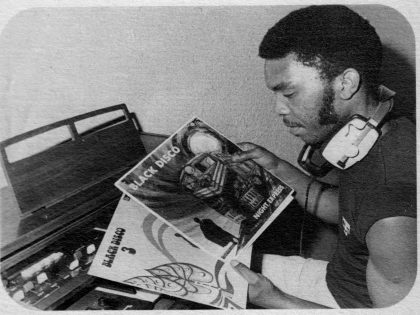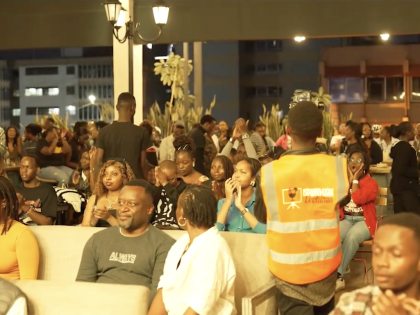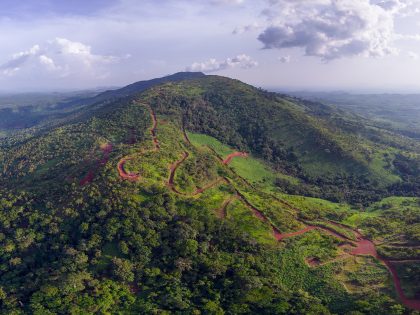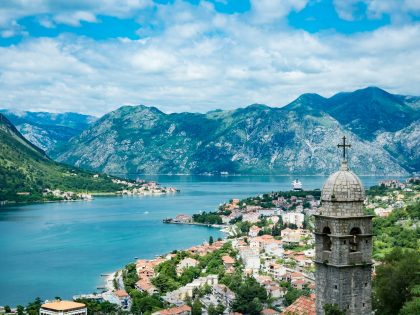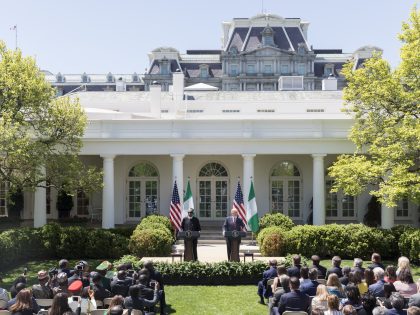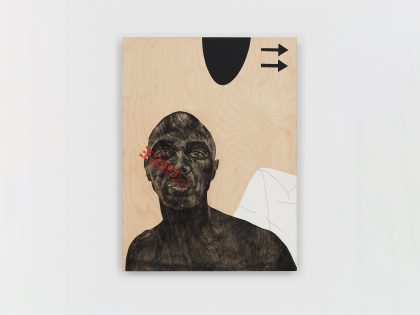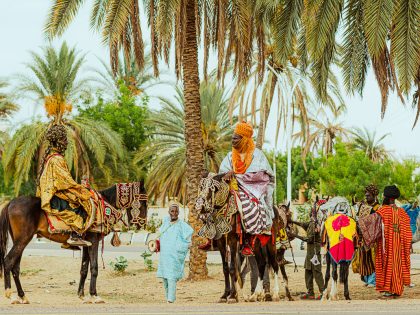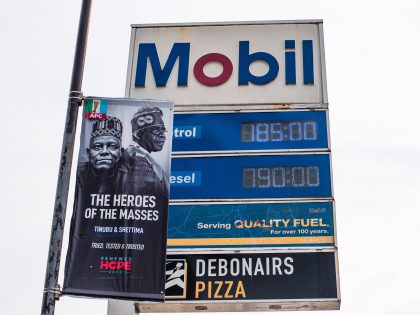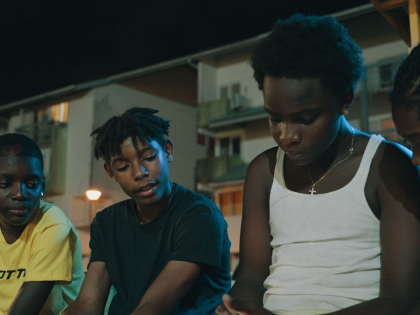Summer Reading List
What are some Africa Is a Country editors and contributors reading during their northern hemisphere summer break?

Sean Jacobs.
Everything I’ve heard and read about François-Xavier Fauvel-Aymar’s Le Rhinocéros d’Or tells me I’m going to love it. The author is a French historian who specializes in medieval Africa and sheds light on ignored parts of African histories trough a number of mini-essays covering very specific moments and places. It has gotten raving reviews pretty much everywhere it’s been featured. I have high hopes because it seems to combine a ridiculously high level of erudition with stunning writing skills making it accessible to the curious layman (I’ve heard the author speak about the book and extracts from it read on radio). I plan on reviewing it for AIAC over the summer if time allows, so stay tuned. I’ll also be reading Lumières de Pointe-Noire, Alain Mabanckou’s latest. It was featured prominently at the Etonnants Voyageurs festival. I couldn’t possibly tell you what it is about in a few lines, it wouldn’t make sense – suffice to say, I read everything he writes. He was featured two years ago in The Economist (I know, weird) and I think that feature really touches upon why everyone should be excited about his writing. He also tweets excellent and humorous quotes from Francophone authors. — Jacques Enaudeau.
Zimbabwean writer and 2011 Caine Prize awardee NoViolet Bulawayo’s debut novel, We Need New Names, takes up where Bulawayo’s short story “Hitting Budapest” left off. The novel is a story of girlhood, of ten-year old Darling’s experiences of a particular kind of intersectional existence: undocumented African immigrant, American teenage girl, and a cultural and social identity that is, understandably, caught between the two. Whether Darling is hungry and prowling for guavas with her friends in Zimbabwe or illicitly driving to the mall in Michigan, she is still, at the core of this story, a girl who is facing the very real traumas of growing up. What is more, she is growing up in between two seemingly disparate worlds. This is why I’m not entirely convinced by the claim in some reviews that the (alphabetized!) afternoon pornography screenings Darling and her new American friends diligently partake in are exterior to the novel’s trajectory, though it might seem so at first read. It would be too simple to dismiss Bulawayo’s careful attention to the fact that Darling is growing up, and growing up in a vastly different way than she and her friends in Zimbabwe would have imagined. Darling is coming of age in a disconcerting but identifiable way: vapidly, with little desire to keep in contact with home and her previous self, but always still with Zim in the back of her mind and bottom of her heart. We Need New Names has offered, if haltingly, a question to African novelists and their international audiences, one that is perhaps also observed to an extent in Chimamanda Adichie’s latest, Americanah. Bulawayo has set on the difficult task of writing a contemporary narrative of girlhood, at home and abroad, without either sugarcoating or weighing down the broader themes of Zimbabwean politics, economic struggle, AIDS, emigration, and the precarious nature of citizenship, belonging, and identity. Is it perfect? Not at all, and it has been critiqued for “performing Africa” – a fault that Tom noted in a conversation with me lies more with what publishing houses want than what writers are producing. But with this mind, it is still an articulate and engaging read, and one that I think would pair in helpful ways with Tsitsi Dangarembga’s classic Nervous Conditions in the classroom. — Sophia Azeb.
Wish we could claim Gonçalo Tavares as an African writer (he’s Angolan born). Learning to Pray in the Age of Technique is one of the most penetratingly philosophic texts I’ve ever read even though it’s fiction. Look for my review in the Chimurenga Chronic. — Olufemi Terry.
In preparation for a class that I teach on images of Africa and Africans in the West (and possibly an AIAC post), I’ll be reading Taylor Stevens’ The Informationist, which, as I understand it, is basically Girl with the Dragon Tattoo Goes to Africa. From the plot description, the book would seem to traffic in nearly every conceivable stereotype and trope, making it perfect fodder for a class critique. Though, who knows, perhaps like The Book of Mormon–which sounded similarly awful in plot synopsis form–The Informationist will pleasantly surprise me. — Nicholas Barber
If being stereotyped were a competetive sport where Africa aggravatingly excels, a special medal must be reserved for queer Africa, by turns inescapably cast as the ultimate victims of either tradition or modernity. Few subjects more deserve a shot at nuanced, probing complexity, generated from within itself. And here’s a link in that conversation: although the Queer African Reader, a multi-faceted collection of essays, letters, short stories and manifestoes is targeted at the internal build-up of a distinct African queer discipline and movement, the rest of us are given the privilege of being able to keep quiet, listen in and learn. — Johan Palme
Although Laurie Gunst’s Born Fi’ Dead is a couple of decades old book about Jamaican political history and gang violence, it allows me to draw some eery parallels to the current Sierra Leonean political context. Of course the situation is not the same, but the book serves as a great comparative case study for a post-Fanonian glance at violence in contemporary Black Atlantian society. As I read it my thoughts jump back and forth between between places as disparate as Chicago and Rio. — Chief Boima
Published in 2001, the late Phaswane Mpe’s Welcome To Our Hillbrow, is one of the more well-known examples of post-apartheid South African literature. The story is narrated by both the main character, Refentse, and a former lover from the same hometown, Refilwe. It is told in the form of an intimate dialogue between the two interconnected souls speaking from a place beyond this world and is set predominantly in the notorious central Johannesburg neighborhood of Hillbrow. It is at once staggeringly beautiful and deeply tragic, dealing with themes of xenophobia, AIDS, home and place, memory and meaning in contemporary South African society. — Steffan Horowitz.
“We have to resist against the overdose of information and communication and use silences to create our own space”—this is how Mia Couto described the idea behind his book, The Tuner of Silences, at a recent book launch in Brooklyn. The acclaimed Mozambican writer’s new book is about a father who isolates himself after the traumatic death of his wife, together with his two sons in a nature preserve. The preserve serves as a sanctuary that the father, waiting for the world to end and God to apologize, calls Jezoozalem. The book is about many things—the reconstruction of a family history and the legacies of war, memory, identity and language—but first and foremost, it represents Couto’s commitment to tell stories that transcend different worlds and cultures: “We’re not localized and our stories can touch other people,” Couto said at the book launch. Literary critics have tried to give Couto’s integrative style a name: magical realism, as his stories shift between real and surreal events. Couto rejects the label, as it confirms differences between “Western” and African culture, going against his goal of transmitting commonalities through fiction. (Read Aaron Bady’s recent critique of the label “magical realism”.) — Corinna Jentzsch.
Paul S. Landau’s Popular Politics in the History of South Africa, 1400-1948 is an excellent analysis of the major themes of South African revisionist or Marxist historical writing: the origins of the South African order, including the origins of “tribes” or ethnic identities as political entities, the emergence of religion, and so on. Landau, a contributor to The Cambridge History of South Africa, wrote an important book that is a required reading to all those who seek insight into the relationship between the past and the present in South Africa. — Thomas Blaser
I will ignore the controversy this book stirred when it emerged bra Zakes Mda, acclaimed South African novelist and playwright, may have plagiarized huge chunks of text from 2000’s The Heart of Redness from another book, JB Peires’ The Dead Will Arise. He explains the entire ordeal in his memoirs, Sometimes There is a Void – also an essential read. The Heart of Redness is shaping up to be an exquisite piece of commentary on issues as wide-ranging as colonialism and its polarising effects on African people; supposedly ‘false’ prophets and their dubious demands; and a former exile’s quest to fit into post-94 South African society after an extended period of absence from the country. Throughout the book, Mda employs magical realism to pit the past (the Xhosa cattle killing of the mid-1800s) against the present (post-94 independence, the fight against industrialisation). We meet fully-formed, memorable characters such as Xikixa, the family head rendered headless by one John Dalton, a trader; Twin and Twin-Twin, the warring offspring; the for-progress non-believers and the believers, who happen to believe in Nongqawuse’s prophecies. His usage of humour results in an accessible and relatable body of work, more so if one possesses a firm grasp of the nuanced socio-political landscape of South Africa’s Eastern Cape province. — Ts’eliso Monaheng.





